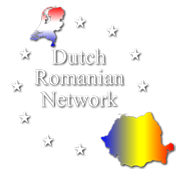Newsletter 16 November 2021

DRN News – Special Edition
Force Majeure: Romanian Business Day is postponed to February 10 2022!
Unfortunately, we have to make this announcement, given the tightening of last Friday. At the same time, we want to give you the guarantee that postponement will not result in adjustment!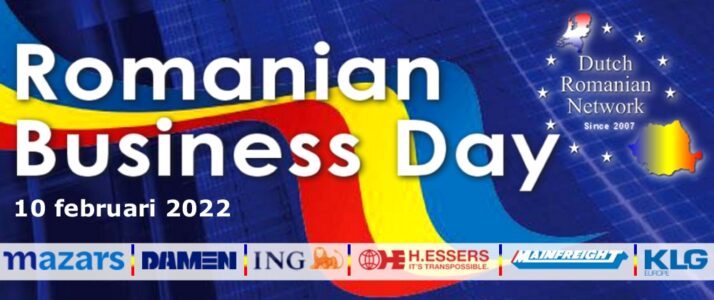 Although it sounds contradictory, we support the strong measures taken by the caretaker government and at the same time it gives us confidence that the effects of the Covid-19 virus will be drastically reduced. That is why we dare to make the statement that this Romanian Business Day will still take place around mid-February 2022! Almost with the same program with, of course, with updated principles that then apply.
Although it sounds contradictory, we support the strong measures taken by the caretaker government and at the same time it gives us confidence that the effects of the Covid-19 virus will be drastically reduced. That is why we dare to make the statement that this Romanian Business Day will still take place around mid-February 2022! Almost with the same program with, of course, with updated principles that then apply.
In this special edition we will take over the substantive themes because they will not disappear from the agenda and will return in February. We will closely monitor interim developments and report them to you. We are also pleased that the collaboration with a large number of experts in specified sectors can be continued. Even the (unique) location will be maintained.

The Dutch and Romanian business community supports the government measures of both countries by allowing (international) economic activities to take place as much as possible and also to achieve a certain economic growth within the limitations of this Corona period. Many sectors are in flux as a result of the energy transition, but climate and environmental policy are also having an increasing influence on the agricultural sector in both countries. It is sometimes forgotten in “Brussels” that the situations in the 27 Member States differ and that a fine-tuning is therefore necessary. The mobility package for the logistics sector is an appealing example of this and has generated a lot of resistance.
Entrepreneurial organizations that mainly focus on Romania and the Netherlands (and vice versa) such as the Dutch Romanian Network and the Netherlands Romanian Chamber of Commerce put the interests of entrepreneurs first and their credo is that necessary changes must also be improvements and therefore offer new opportunities to the businesslife. You can of course still consult the program, because, as said, postponement does not mean adjustment. By now everyone has experienced that networking online doesn’t really work. So click here and you will find all information about the location, times, program, round table sessions, etcetera. We rely on your understanding of the external necessity that compelled us to make this decision.
Are round table conversations better than at the kitchen table?
Without crystal ball!
 We doubt whether it will be due to the shape of the table, because the most important decisions are not made at the kitchen table? However, we now have experts at hand who can be questioned and who usually also know what is going on among entrepreneurs. And that makes the difference!
We doubt whether it will be due to the shape of the table, because the most important decisions are not made at the kitchen table? However, we now have experts at hand who can be questioned and who usually also know what is going on among entrepreneurs. And that makes the difference!
Right now good advice is important because there is a certain political instability in the Netherlands and Romania and then it is important to listen carefully to get an idea of the current situation and the period thereafter without making predictions. which requires a crystal ball.
The tax picture through the eyes of Mazars
Every entrepreneur takes the tax aspect into consideration when choosing to (re)invest or consider a status quo. The tax-friendly environment also plays a role and since both countries are in caretaker status, an international independent organization such as Mazars can play an illuminating role.
play an illuminating role.
Mazars has been active in Romania since 1995 and has more than 220 employees, six partners and occupies the fifth position in the Romanian audit, tax and advisory market. In addition to a Dutch Desk, there is also a German desk. For Dutch-speaking investors or investors in or through the Netherlands, we work together in interdisciplinary teams of Dutch and Romanian tax specialists, lawyers and accountants.
Dutch entrepreneurs and private individuals form an important part of their clients. Your affairs can also be looked after by a team of specialists, who can communicate with you, your business partners, as well as the Romanian authorities in Dutch, English or Romanian. In addition, at the office in Romania there are also partners with French and German as mother tongues. So Edwin Warmerdam, Partner Mazars Romania and Andreea Ignătescu will be happy to receive you and explain.
DRN Task Force Agri & Food gets hands on the plow
The active members of this Task Force, in which numerous disciplines are represented, regularly speak for themselves. It is also necessary because the 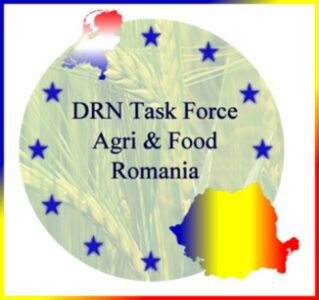 The agricultural sector is undergoing significant changes in both the Netherlands and Romania. The situations in the two countries certainly differ from each other, but that offers opportunities and opportunities to achieve a matchmaking of interests. Because this economic sector is so extensive and diverse, many experts are present, such as Reinder Schaap (Chairman of the Task Force), Pieter Hellferich (Agriprogress), Jan Stemerink (Green Pact), Robert Rekkers (Agricover Credit IFN), Arie Veldhuizen (Agricultural Council) and Ineke van de Weijgaart (Ministry of Agriculture, Nature and Food Quality). In addition, they work together with the Task Force Agri of the Dutch Chamber of Commerce in Bucharest, so the interests of the Romanian and Dutch agricultural entrepreneur are served on two “fronts”. So bombard the Task Force with your questions or suggestions, because real action is being taken!
The agricultural sector is undergoing significant changes in both the Netherlands and Romania. The situations in the two countries certainly differ from each other, but that offers opportunities and opportunities to achieve a matchmaking of interests. Because this economic sector is so extensive and diverse, many experts are present, such as Reinder Schaap (Chairman of the Task Force), Pieter Hellferich (Agriprogress), Jan Stemerink (Green Pact), Robert Rekkers (Agricover Credit IFN), Arie Veldhuizen (Agricultural Council) and Ineke van de Weijgaart (Ministry of Agriculture, Nature and Food Quality). In addition, they work together with the Task Force Agri of the Dutch Chamber of Commerce in Bucharest, so the interests of the Romanian and Dutch agricultural entrepreneur are served on two “fronts”. So bombard the Task Force with your questions or suggestions, because real action is being taken!
Without logistics and transport everything comes to a standstill
A sample from our side has shown that, in particular, logistics companies active in the field of international road transport are currently very concerned about the consequences of the highly controversial Mobility Package of the European Commission expressed by the (Romanian) EU Commissioner of Transport Adina Valean.
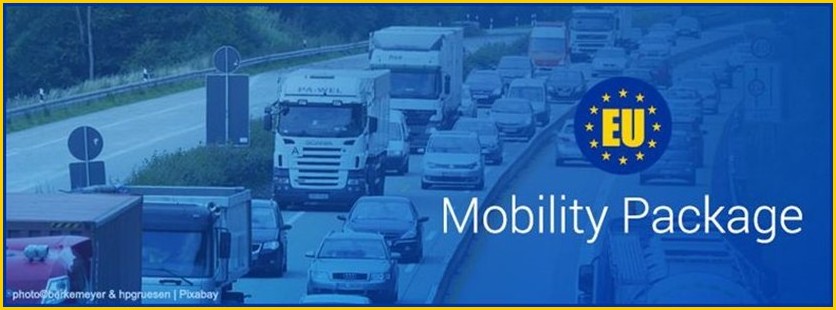
The sector organization Transport and Logistics Netherlands (TLN) through its chairman Elisabeth Post has indeed written a message to the European Commission in which they state that the environmental impact is enormous in the negative sense of the word and the “back-to-home rule”. ” should be abolished. It is clear that the rule has a serious short-term impact on the costs that will ultimately have to be borne by the consumer.
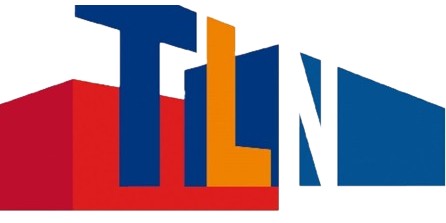 Despite the fact that most industry members are reasonably aware, we want to remove the latest misunderstandings that have been identified. It can also help the entire Dutch industry, because many sectors think it is not their business. Most of them have the unpleasant experience of the impact of Brexit, including in our industry.
Despite the fact that most industry members are reasonably aware, we want to remove the latest misunderstandings that have been identified. It can also help the entire Dutch industry, because many sectors think it is not their business. Most of them have the unpleasant experience of the impact of Brexit, including in our industry.
We do not want to withhold from you the opinion piece below by Fred Westdijk CEO of Jan de Rijk Logistics, who very well articulates where things go wrong with the Mobility Package, which appeared in Nieuwsblad Transport.
‘EU mobility package gets in the way of its own climate plans’
The measures in the European Mobility Package make it virtually impossible to achieve the environmental targets imposed by the same EU. Transport companies are in a dilemma due to conflicting European regulations.
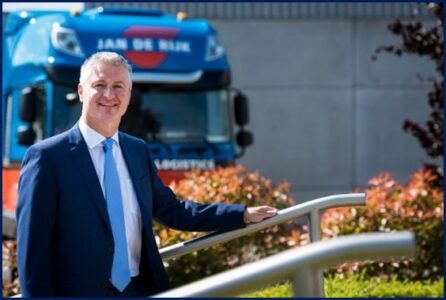 On 31 May 2017, the European Commission adopted the Mobility Package, a broad set of initiatives to address the transport and mobility challenges in Europe. With the Mobility Package, the European Commission wants to combat post box companies, put an end to the systematic use of foreign companies for domestic transport (cabotage) and improve the working conditions of drivers in international transport.
On 31 May 2017, the European Commission adopted the Mobility Package, a broad set of initiatives to address the transport and mobility challenges in Europe. With the Mobility Package, the European Commission wants to combat post box companies, put an end to the systematic use of foreign companies for domestic transport (cabotage) and improve the working conditions of drivers in international transport.
Driver shortage
Objectives that all reputable transport companies will fully endorse. The largest share of employees in the industry are drivers, their contribution is essential for a well-functioning economy. But there is also a big problem.
After all, in Western Europe there is a great shortage of people who want to work as drivers. The shortage must therefore be permanently supplemented with drivers from Central and Eastern Europe. Not everyone is happy about labor migration, but the reality is that these workers are missing here and are essential to our economy. The Mobility Package was created to make this a fair playing field.
empty back
Despite the many good intentions, a wrong measure has also crept into the Mobility Package. Part of the plan is to introduce an obligation to return lorries to the Member State of residence every eight weeks from 21 February 2022; the so-called “vehicle return home” rule.
Several alternatives are possible to comply with this rule, but the sad reality will be that driving up and down empty will be the most cost-effective solution for most companies. In practice this means: unnecessary CO2 emissions and higher costs. Every eight weeks a pointless drive of many thousands of kilometers, which adds no economic value, to get one meter across the border, turn around and drive back. Pointless CO2 emissions and waste of a scarce driver.
This is in direct conflict with European climate plans such as Fit-for-55 and the European Green Deal.
In order to meet the latter objectives, the logistics sector is being stimulated to make an enormous effort at an accelerated pace. Electric vehicles can be used for short distances. For longer distances, other means must be used, such as accelerated fleet renewal (the latest models deliver fuel savings of up to 10%) or replacing diesel fuel with biodiesel (HVO Hydrotreated Vegetable Oil), which can achieve a CO2 reduction of up to 90%.
Switching road transport to other modes and compensating for emissions through global sustainability projects are also options, but these are projects that require major investments and will ultimately be paid for by consumers. It is therefore unfortunate that these environmental efforts are partly nullified by an incorrect measure.
bureaucratic error
Politicians seem to have no solution to this problem. Despite talks in Brussels and The Hague to draw attention to this problem and to convince politicians to refrain from this measure. According to politicians, the Mobility Package was a sensitive file and nobody wants to burn their hands on it. The result of this bureaucratic error: the environment, the economy and the consumer are the victims.
Summary DRN
The new obligation has nothing to do with social goals, but represents a step in the market restriction, violating the freedom to provide services and the freedom to do business. In addition, it goes against climate protection efforts such as reducing empty rides.
Romanian Economic Outlook for 2022
If one consults the international institutions dealing with macroeconomic forecasts, a robust growth of 4.8% is expected in Romania by 2022. Rising inflation is likely to be more difficult to predict. Inflation in the Euro area and that in the Netherlands, measured by the hicp, is limited to 1.5% per year in 2022-2025, well below the inflation target of the ECB. The real wage rate increases, based on the price development of value added, to the same extent as labor productivity. However, for the member states (i.e. including the countries that do not belong to the euro area) there are differences in expectations. It will be a challenge for Serge Offers to make a statement about this, but as a banker (ING) he will naturally operate on the cautious side when it comes to expectations. The pandemic and the erratic unpredictability about a new government to form complicates things.
price development of value added, to the same extent as labor productivity. However, for the member states (i.e. including the countries that do not belong to the euro area) there are differences in expectations. It will be a challenge for Serge Offers to make a statement about this, but as a banker (ING) he will naturally operate on the cautious side when it comes to expectations. The pandemic and the erratic unpredictability about a new government to form complicates things.
Whether starters should keep an eye out for the time being is the question. The past has taught us to never allow a crisis to go to waste, because during a crisis we often become resourceful, and we see opportunities that we would otherwise miss.
Shipbuilding sector
Damen Shipyards Group does it again: Electric ferry Bryggen wins Ship of the Year 2021 Award
The seven fully electric ferries that Damen Shipyards Group built for Danish public transport are the reason for awarding them the Ship of the Year 2021.
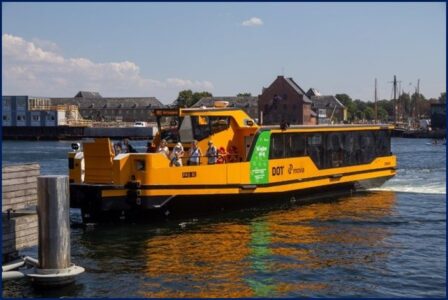 They have been able to supply 100% electric ferries and matching charging stations ashore, making use of the experience gained in the automotive sector.
They have been able to supply 100% electric ferries and matching charging stations ashore, making use of the experience gained in the automotive sector.
Every year, each ferry saves no less than 150,000 kilos of CO2. A result to write home about!
Until recently, the standard in ferries in much of the world was hybrid: diesel engine and battery. Damen dares to state with certainty that the new standard will be fully electric. “The concept we have set up is very reproducible under comparable conditions; relatively short distances, a transport capacity of up to 100 people, no high speeds”.
The market potential for electric ferries is great. The intrinsic motivation of governments and other transporters to offer more sustainable transport and thus contribute to a healthier living environment is increasing.
Agreement of intent signed between Damen Shipyards and Royal Van der Leun
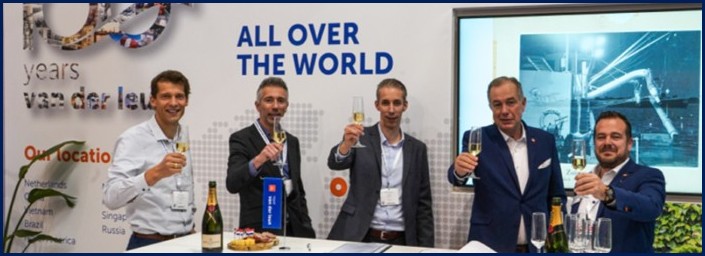
A letter of intent was signed on Thursday 4 November between Damen Shipyards and Royal Van der Leun. Both collaborating companies are members of the Dutch Romanian Network.
The festive moment took place on the third day of the Europort and concerns the entire electrical installation of 2 barges for end customer Wolverine in Canada. The Barges are used in an innovative way to bunker large sea-going vessels via train wagons (temporary) transshipment. Royal Van der Leun thanks Damen for the trust and looks forward to another great collaboration!
Damen appoints new director of Mangalia shipyard
 As of September 1, the Dutch have appointed a new general manager at Damen Shipyards Mangalia, with Chris Groninger being replaced by Adrianus Peter Zoeteman. Also, the state-owned company Șantierul Naval 2 Mai SA, controlled by the Ministry of Economy(51%), has adapted the board of directors of the company by appointing new temporary members.
As of September 1, the Dutch have appointed a new general manager at Damen Shipyards Mangalia, with Chris Groninger being replaced by Adrianus Peter Zoeteman. Also, the state-owned company Șantierul Naval 2 Mai SA, controlled by the Ministry of Economy(51%), has adapted the board of directors of the company by appointing new temporary members. 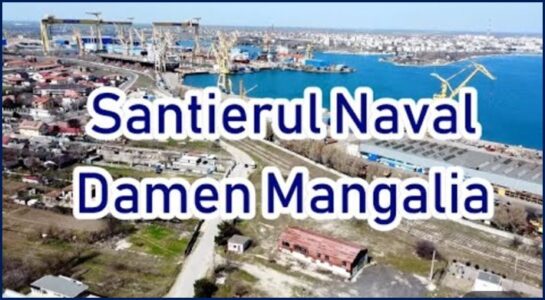
As is known, due to changed market conditions and the Covid-19 pandemic, shipbuilding and repair activities decreased drastically in 2020 and new shipbuilding orders in Europe fell by 64% in tonnage last year compared to 2019. It made it necessary for Damen Mangalia to make do and therefore also to lay off a number of redundant employees Negotiations with trade unions and the ministry are still ongoing, so all in all, Peter Zoeteman faces a major challenge, in which we wish him every success to wish.
There is no clarity about the input of Dutch knowledge and expertise for submarines
The outgoing Minister of Defense again does not provide clarity about the way in which Dutch companies are involved in the development and construction of the replacement for the Walrus-class submarines. This is apparent from his response to questions submitted during the Written Consultation on Personnel and Materiel Defense. The minister again refers to the setting up of an industrial cooperation agreement to establish the greatest possible Dutch involvement, but does not provide any details about this.
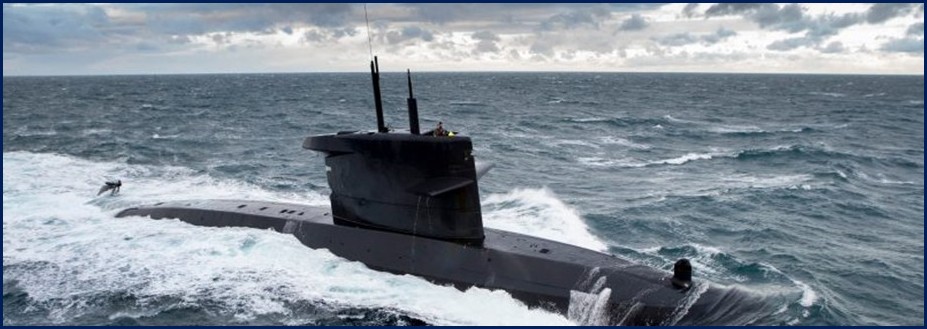
Moreover, this industrial cooperation agreement will not form part of the package of requirements. In addition, the minister links the possible involvement of the Dutch business community to national security interests and strategic autonomy. However, due to the interpretation of the concept of strategic autonomy that Defense uses, the Dutch contribution is limited to a few components at most.
Make strengthening the Dutch naval construction cluster part of the package of requirements
NMT (Netherlands Maritime Technology) therefore advocates a different approach, based on the knowledge, expertise and capabilities of the Dutch suppliers of components and systems. Now it is always about what is not possible in the Netherlands, but not about what is possible within the Netherlands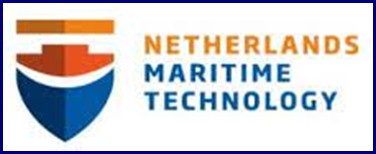 Dutch industry. According to NMT, there is no technical obstacle whatsoever to incorporating the Dutch contribution in the design of a submarine from a foreign supplier.
Dutch industry. According to NMT, there is no technical obstacle whatsoever to incorporating the Dutch contribution in the design of a submarine from a foreign supplier.
Maximum involvement of Dutch industry at a high-tech and strategic level in setting needs, (adjustment) design, development and construction leads to strategic autonomy of the Netherlands. After all, we are then able to largely keep the boats in service during their entire lifespan. Moreover, it makes the availability of knowledge and intellectual property easier for Defense and the NL-DTIB and the export potential of the companies are substantially strengthened. As has long been known, Damen Shipyards cooperates with the Swedish company Saab Kockums.
‘We recently modernized the current Walrus class in the Netherlands. That is more complex than designing a whole new submarine,” said a spokesperson for Damen Shipyards. Damen Schelde Naval Shipbuilding from Vlissingen — part of Damen Shipyards from Gorinchem — is helping Swedish Saab Kockums with the tender.
VNO-NCW has been campaigning for the sector for some time. Two years ago, together with the trade unions, the employers’ organization sent a letter to the then Defense Minister Ank Bijleveld. ‘The Netherlands has a strong naval construction cluster. Companies and many specialized SMEs must be given a permanent place during the construction and during the life of the submarines’, says VNO chairman Ingrid Thijssen. ‘That pays for itself doubly. It is allowed under European law, and others do it too.’
‘Penny wise and pound foolish’, is how FME chairman Henrar calls the attitude of the Dutch government. ‘The government only wants to tender as cheaply as possible, without realizing that every order that the Dutch maritime industry carries out will amply pay for itself in the long run through all kinds of taxes and exports,’ says Henrar.
NN Romania will mediate mortgages from ING Bank from November
NN Romania offers customers a total solution for their home. From purchase advice and necessary guidance in unforeseen situations. From November, NN, in collaboration with ING, will introduce mortgages in its service portfolio. It complements the insurance package linked to loans already available to customers when buying a home. “By expanding our portfolio of financial solutions, we want to simplify the experience customers have when buying a home, while we are pleased that our partners can benefit from the sales expertise of our team. The collaboration with ING is unique in this regard and creates multiple opportunities for all of us,” said Gerke Witteveen, Chief Financial Officer at NN. “The collaboration between ING and NN is a long-term partnership and focuses on a variety of products and services that we offer together, such as health insurance or mutual funds available 100% online through Home’Bank.
collaboration with ING is unique in this regard and creates multiple opportunities for all of us,” said Gerke Witteveen, Chief Financial Officer at NN. “The collaboration between ING and NN is a long-term partnership and focuses on a variety of products and services that we offer together, such as health insurance or mutual funds available 100% online through Home’Bank.
As they operate successfully, we saw an opportunity to extend the partnership in the lending area as well. In this way we are closer to our customers and we offer them a new channel through which they can get more information about the mortgage they want,” says Roxana Cristea, Lending Tribe Lead within ING Bank.
Customers who intend to buy a home can turn to NN’s specialists for the information necessary to obtain a mortgage loan from ING Bank with a value of between 13,000 and 900,000 lei for their home, for a period from 3 to 30 years, with an advance payment of at least 15%. In addition, with the support of NN representatives, customers can also get information about the life insurance that they can link to the loan when they are at the ING branch, which offers their families financial protection in case of unfortunate events, but also about the NN home insurance that offers protection in 24 unforeseen situations that could affect their home. The message NN Romania will mediate mortgages from ING Bank from November.
Agricultural sector
Takeover by the Dutch DN Agrar Group
DN Agrar (member of the DRN) is a group of companies formed in the Netherlands and Romania that are active in the fields of animal husbandry, agricultural production, agricultural services, logistics, transport, tourism and consultancy services.
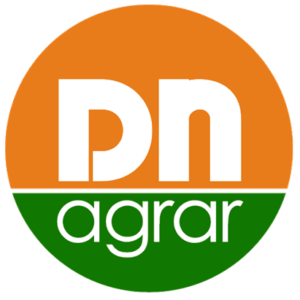 Recently, the DN Agrar Group (CEO Jan de Boer) . Lacto Agrar SRL from Huneadora acquired through a transaction of 4.3 million euros. The acquired company currently has 3,500 cattle and 1,749 hectares of land, of which 1,445 hectares are cultivated.
Recently, the DN Agrar Group (CEO Jan de Boer) . Lacto Agrar SRL from Huneadora acquired through a transaction of 4.3 million euros. The acquired company currently has 3,500 cattle and 1,749 hectares of land, of which 1,445 hectares are cultivated.
DN Agrar aims to reach the largest number of dairy farms in Romania by the end of 2021, aiming to produce 130,000 liters of milk per day. The DN Agrar group of companies was founded in Romania in 2008 with the opening of the first affiliated companies: DN Agrar Group SA and DN Agrar Cut SRL. Subsequently, the companies DN Agrar Trading SRL, DN Agrar Service SRL, DN Agrar Prodlact SRL, DN Farm Concept SRL, DN Agrar Straja SRL, DN Agrar Bio SRL, DN Agrar Greenfield SRL, DN Agrar Logistics SRL and Pensiunea Casa Buna SRL. DN Agrar Group had a net profit of RON 5.5 million in 2020, an increase of 65% compared to 2019, and a turnover of RON 38.2 million, an increase of 4.2% over the year. In 2020, the Group’s debt amounted to RON 50.7 million. The Group has an average of 162 employees. For 2021, following the acquisition of the Lacto Agrar farm, the Group expects a net profit of RON 9.2 million and a turnover of RON 78 million.
For the Royal Zeelandia Group there is still a world to win in Romania
The Royal Zeelandia Group from Zierikzee has branches in almost all European countries, including in the Romanian city of Iasi. They are an independent international producer of ingredients for bread and confectioneries. The head office is in Zierikzee, where approximately 430 employees work. In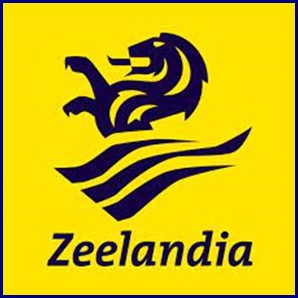 In total, more than 3000 people work at Zeelandia (internationally).
In total, more than 3000 people work at Zeelandia (internationally).
However, looking at the recently released figures for the Romanian bakery sector, it appears to be one of the least profitable in Europe, despite comparable production costs.
But there is light at the end of the tunnel, as poor profits have prompted most manufacturers to expand their product range and add higher value-added items. Romania makes 1.5 million tons of bread per year. Per capita bread consumption in Romania was 96.5 kg per year in 2019, above the EU average of 60 kg per capita. Statistics also show that Romania imports 900,000 tons of frozen bread per year. The local milling and bakery sector, which comprises approximately 6,000 companies, reaches approximately RON 10 billion (EUR 2 billion) per year in a food market of approximately EUR 10 billion per year.
Walnuts, gold mine in Romania
 Walnuts have become a real money factory in recent years. That’s what the farmers in the country say. In addition to the annual subsidy
Walnuts have become a real money factory in recent years. That’s what the farmers in the country say. In addition to the annual subsidy which they get from the state, they have discovered a market at home and abroad. And the investments are not large, because walnuts do not require special attention. As the company grew from year to year, Romania became one of the largest nut producers in Europe.
which they get from the state, they have discovered a market at home and abroad. And the investments are not large, because walnuts do not require special attention. As the company grew from year to year, Romania became one of the largest nut producers in Europe.
Ioan Mureșan is a farmer from Alba County who decided nine years ago to grow walnuts on the ten hectares of land he owns near Alba Iulia. He was a mining engineer by trade and spent his summers, aged 8, in Switzerland, where he specialized in organic farming. He was very well documented about the cultivation of walnuts and decided to plant some French varieties that are very fertile and resistant to drought. He bought nuts worth 20,000 euros. He planted them and watered them several times the first year, then only twice a year. Last year he got the first harvest. There weren’t too many quantities, but he hopes to get more this fall. Ioan Mureșan says that walnuts have become a business, especially if you pursue an ecological culture. In addition to the state subsidy, you get another 6,000 euros per hectare from the sale of shelled walnuts. Mircea Trifu is another farmer who specializes in walnut cultivation. He also invested in black walnut, a cultivated variety, for particularly valuable timber. The price of a kilogram of shelled walnuts is 40 lei in the country or 8-9 euros for export.
Political developments
President Iohannis reiterates in Brussels Romania’s request to join the Schengen area as soon as possible
 President Klaus Iohannis attended the European Council meeting in Brussels on Thursday 21 and Friday 22 October and reiterated Romania’s request to join the border-free Schengen area as soon as possible.
President Klaus Iohannis attended the European Council meeting in Brussels on Thursday 21 and Friday 22 October and reiterated Romania’s request to join the border-free Schengen area as soon as possible.
With the addition of the Presidential Administration:
“Schengen membership has a strategic and geopolitical objective, not only for Romania, but above all for the entire European Union. President Klaus Iohannis has shown that in the more than 10 years since Romania should have been part of the Schengen area, the country has acted de facto as a responsible and efficient Schengen member state.” Acte and we will follow the Dutch position closely! Because the DRN, as well as the VNO NCW and the Dutch Romanian Chamber of Commerce have long ago published a statement that the president is in the right!
Political peddling undermines support for improving the climate and the environment
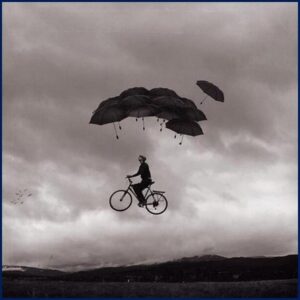 Numerous hot air balloons were again released at the recent Glasgow summit, which everyone knows are hardly feasible. Such as a signing of a “treaty” that is no more than a declaration of intent on green hydrogen and which states that all new freight traffic must be green from 2040, namely the range of an electric truck is far too small for the enormous distances that they are now taking off and the infrastructure for charging stations is still a long way off. So-called environmentally conscious politicians are also talking about building more nuclear power stations as a solution to the energy problem, but a solution for nuclear waste has still not been found. The road from dream to deed is very long, so the saying “see before believing” still resonates.
Numerous hot air balloons were again released at the recent Glasgow summit, which everyone knows are hardly feasible. Such as a signing of a “treaty” that is no more than a declaration of intent on green hydrogen and which states that all new freight traffic must be green from 2040, namely the range of an electric truck is far too small for the enormous distances that they are now taking off and the infrastructure for charging stations is still a long way off. So-called environmentally conscious politicians are also talking about building more nuclear power stations as a solution to the energy problem, but a solution for nuclear waste has still not been found. The road from dream to deed is very long, so the saying “see before believing” still resonates.
Sector Cosmatic
Gerovital: How a Romanian brand performs even in difficult times – Opportunity for Dutch importers
Gerovital is the first brand to introduce affordable anti-aging products to the local market, based on a Romanian innovation by gerontologist Ana Aslan. Since then, the portfolio has continued to grow and the brand has remained present in the life and at the top of the preferences of different generations of consumers, both in Romania and abroad.

Remarkably, the Gerovital products are exported to 30 countries except the Netherlands. In 2020, Gerovital remained the best-selling anti-wrinkle brand in Romania, according to recent market studies, it has been named Superbrand for the fifth year in a row, and in a top of the strongest Romanian brands it remains on the podium, with the top three. We learn from the interview with Liliana Popa, Farmec PR Manager. Farmec from Cluj Napoca is the sales organization that markets the Gerovital products. So here lies a golden opportunity for importers of cosmetic products.

Embassy news
Changing of the Guard at Embassy Consular Affairs
In a figurative sense, this department is a kind of nerve center when it comes to applied knowledge of laws and regulations in various fields and related to documents and whatnot.
In the past two years, it was staffed by Vice Consul Maria Roth, who also successfully shaped the digitization of many government services and thus also supervised the honorary consuls. She understood the art of “translating” official jargon into ordinary human language and that talent is not given to everyone in The Hague. The website www.consulate-romania.nl is partly the result of her efforts, which is mainly aimed at the Romanian diaspora in the broadest sense of the word. So she did “shift a stone” for which we are grateful to her.
In the meantime, her successor has taken office and his name is Bogdan Jâglău, as Vice-Consul and Head of the Consular Section and we wish him every success in his new challenge.
Celebration National Day 2021 on December 1 cancelled
 Unfortunately, the tightened corona measures do not allow the celebration of Romania’s National Day to take place in our country.
Unfortunately, the tightened corona measures do not allow the celebration of Romania’s National Day to take place in our country.
Romania’s ‘National Day’ (Ziua Națională) is celebrated annually on December 1. Known as the ‘Day of the Union’ (Ziua Unirii) in memory of the day when Transylvania was added to the Romanian Kingdom (1918).
At a convention in Alba Iulia (December 1, 1918), the unity of Greater Romania (România Mare) was proclaimed, including Transylvania, Bukovina, Maramure, and Banat.
On January 24, the Day of the Small Union (Ziua Micii Uniri), the formal union of the Principality of Moldova and Wallachia in 1862 is celebrated.
Covid-19 Updates Romania
 Romania is experiencing a veritable Corona disaster and many countries have sent medical teams to the country out of a sense of European solidarity to provide assistance on the spot, but also to transport patients to their country due to a shortage of IC beds and staff. These countries are Denmark, Germany, France, Hungary and Poland.
Romania is experiencing a veritable Corona disaster and many countries have sent medical teams to the country out of a sense of European solidarity to provide assistance on the spot, but also to transport patients to their country due to a shortage of IC beds and staff. These countries are Denmark, Germany, France, Hungary and Poland.
The main cause of this disaster is the low vaccination rate which is currently 31.6%. Below is a comparative overview of the top 5 EU with the highest death toll per 1,000,000 inhabitants.
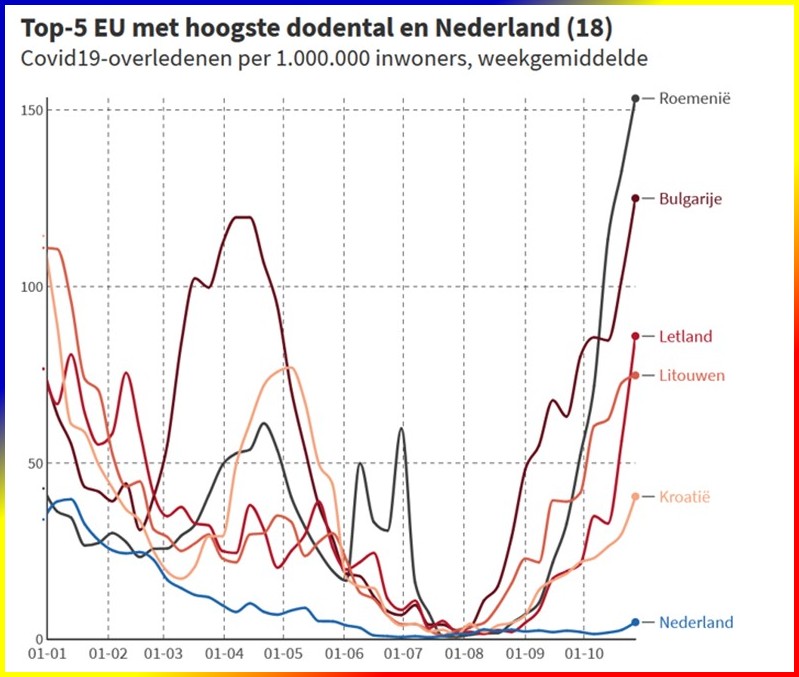
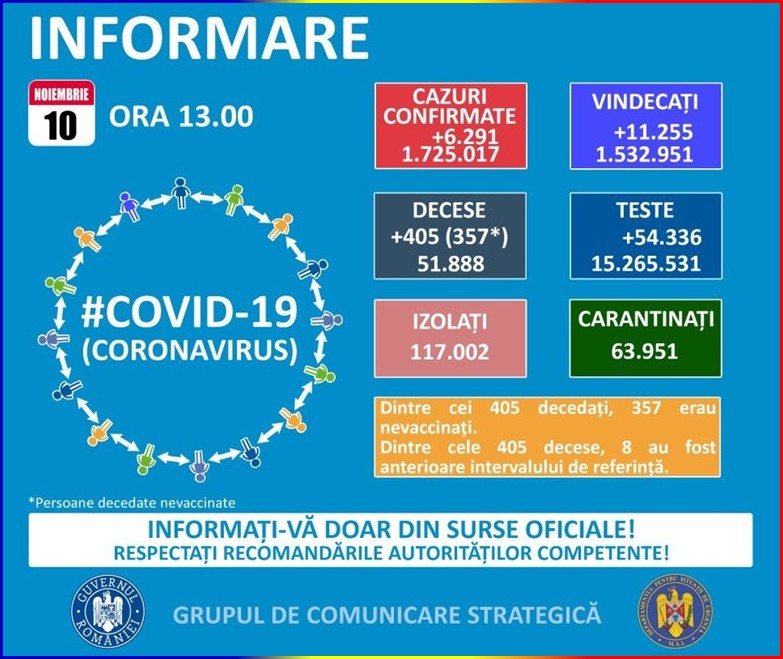 All over Europe, the rules are now being tightened up and situations and regulations are changing almost permanently, so we limit ourselves to the key figures.
All over Europe, the rules are now being tightened up and situations and regulations are changing almost permanently, so we limit ourselves to the key figures.
 But sometimes you come across a situation that is very remarkable:
But sometimes you come across a situation that is very remarkable:
The Bishop of Giurgiului, PS Ambrozie, told parishioners at the service that the fires that broke out in COVID hospitals over the past year were a hoax, made deliberately to make patients choose private hospitals, and urged people not to get involved. get vaccinated. because the vaccines would have expired.
He also launched a hard attack on President Klaus Iohannis and the current political class: “Only lies and the people live in the cold and hunger worse than during the communist period. At the end of the service of Saint Parascheva, the Bishop of Giurgi – a hard attack on politicians and President Klaus Johannis, whom he criticized for not attending the dedication of the Nation’s Salvation Cathedral.
The Giurgiu District Police Inspectorate responded to Libertatea’s request, pointing out that the Călugăreni Police Station had been informed ex officio in this case and that the matter has already reached the public prosecutor’s office.
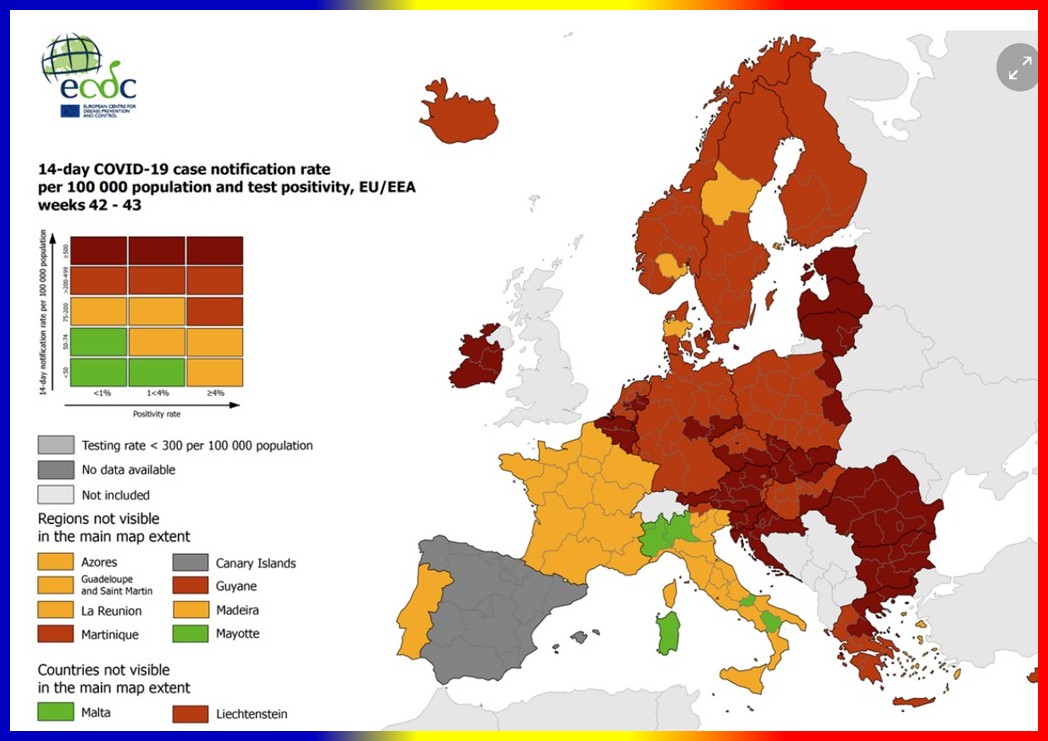
Disclaimer

The newsletter of the Dutch Romanian Network is compiled with great care. The Dutch Romanian Network cannot accept any liability for a possible inaccuracy and/or incompleteness of the information provided herein, nor can any rights be derived from the content of the newsletter. The articles do not necessarily reflect the opinion of the board.
